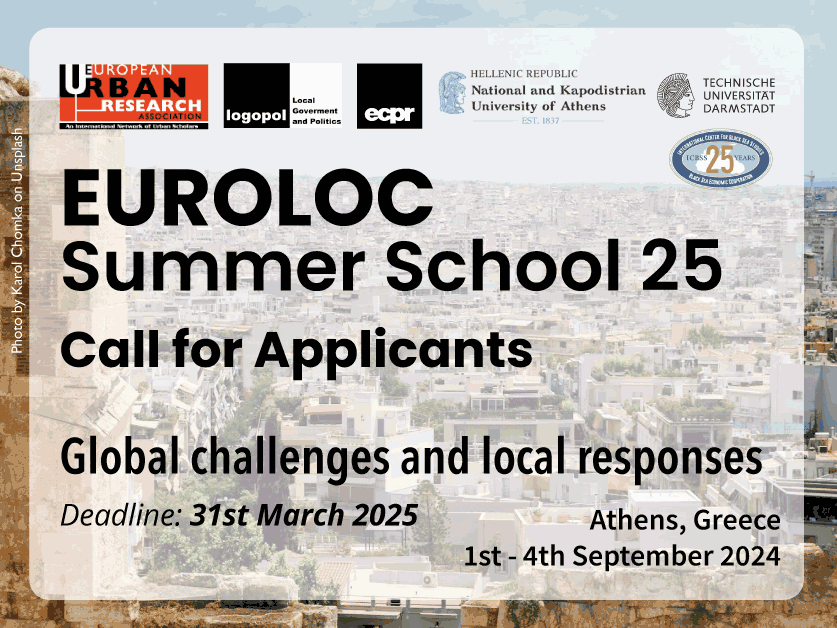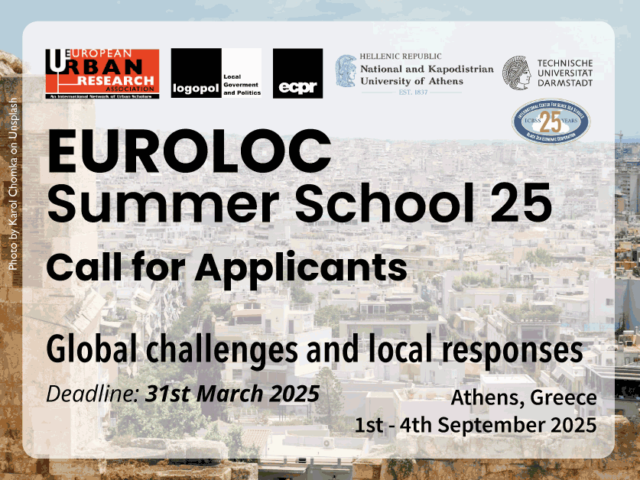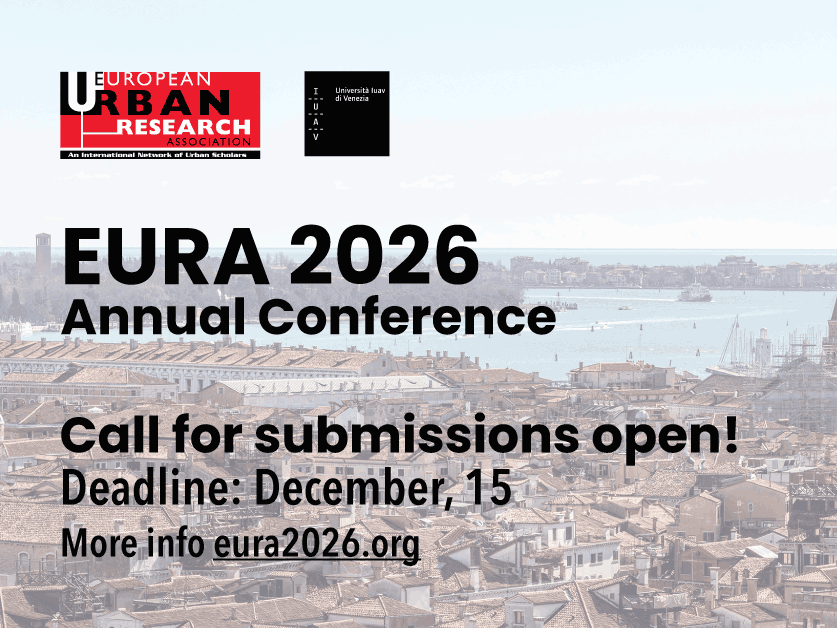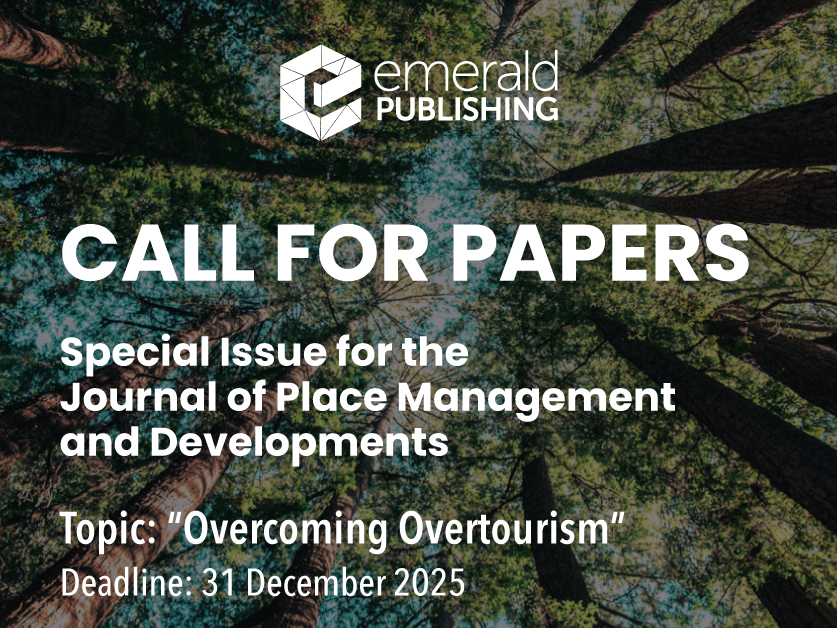
11th PhD Winter School on Research Methodology
11/11/2024
#67 The invisible challenges of feeding sustainable and healthy cities
21/11/2024
EUROLOC SUMMER SCHOOL
ON LOCAL GOVERNMENT & POLITICS 2025
Topic: «Global challenges and local responses»
Call for applicants
Event dates: 1st – 4th September 2025
Application submission deadline: 31st March 2025
To be held at the National and Kapodistrian University of Athens, Greece
ECPR and EURA, in collaboration with the International Centre for Black Sea Studies (ICBSS)
Summer School Topic
Climate change, migration, social disparities, provision of affordable housing, and urban tourism are currently pressing global challenges. These challenges arise concretely primarily at the local level and are addressed not least through local policies. The Summer School is designed to give doctoral students the opportunity to present and discuss their work on local policies to solve or at least mitigate such global challenges. Contributions are particularly welcome that demonstrate particular local-level responses to global challenges through comparisons either within a country or between countries. Because comparisons of local policies are to be the focus of the Summer School, the doctoral students will receive methodological guidance from experienced academics. Furthermore, doctoral students will get advice from the editor of a journal how to write an academic article and to submit it successfully to an internationally respected journal.
Application Process:
Interested PhD students must submit an abstract (of up to 300 words) of the paper to be presented at the summer school and discussed by the participants by 31 March 2025 at the latest. The subject of the paper must fit the topic of the summer school (see above). The abstract is to be sent by email together with the details of the supervisors of the PhD thesis to the organisers of the summer school (Björn Egner, Hubert Heinelt and Nikos Hlepas.
The organisers of the summer school will select papers to be presented at the summer school by the end of April 2025. The main selection criteria are the scientific quality of the papers and their thematic match with the topic of the summer school, which must be demonstrated in the submitted abstract.
Written versions of the selected papers have to be submitted by email to the organisers of the summer school by the end of July 2025 at the latest. All submitted papers will be made available to participants electronically at the beginning of August 2025.
Key information:
Dates: 1st-4th September 2025
Place: National and Kapodistrian University of Athens, Greece
Deadline for submissions: MARCH 31ST 2025
Proposal content: An abstract of maximum 300 words. The abstract is to be sent by email together with the details of the supervisors of the PhD thesis to the organisers of the summer school (Björn Egner (bjoern.egner@tu-darmstadt.de), Hubert Heinelt (hubert.heinelt@tu-darmstadt.de) and Nikos Hlepas (nhlepas@gmail.com).
Confirmation: end of April 2025
Participation fee: free of charge for EURA and ECPR affiliated (check if your university is an institutional member). The organization covers accommodation for the three nights, lunches and one dinner. Travel costs are at the student’s own expenses.
Financial support:
The Summer School will take place at the National and Kapodistrian University of Athens, Greece. Participants will be accommodated in Exarchion Hotel. The participation in the Summer School – including hotel accommodation and up to two dinners – is free of charge for PhD students who are affiliated to a member institution of the EURA (click here to see our institutional members) or the European Consortium for Political Research (ECPR).
For participants who do not fulfil this requirement, a fee will of 150 € will be charged. This fee does not have to be paid by individual EURA members either (click here to become a member).
Participants have to cover their travel expenses themselves. However, the International Centre for Black Sea Studies (ICBSS) can be contacted for a travel grant by PhD students from countries that are members of this organisation.
Organizers:
Nikos Hlepas (National and Kapodistrian University of Athens)
Björn Egner (Technical University of Darmstadt)
Hubert Heinelt (Technical University of Darmstadt)
Faculty Members:
Jurga Bučaitė-Vilkė (Vytautas Magnus University)
Björn Egner (Technical University of Darmstadt)
Hubert Heinelt (Technical University of Darmstadt)
Nikos Hlepas (National and Kapodistrian University of Athens)
Carmen Navarro (Universidad Autónoma de Madrid)
Filipe Teles (University of Averio)
Karsten Zimmermann.(Technical University of Dortmund)






